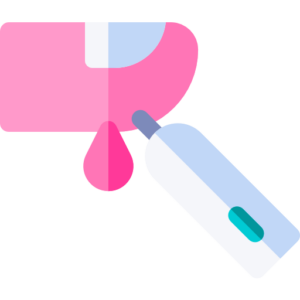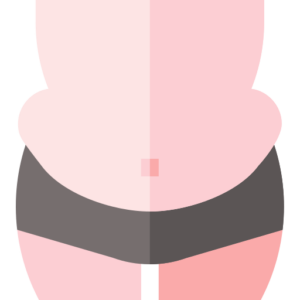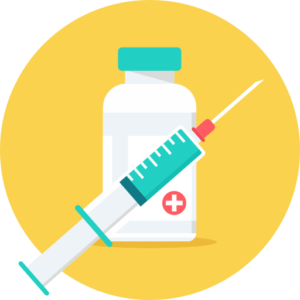Low Wheat Diet Weight Loss
Diabetes and its complications are more common than ever before.
For this reason, it's fundamental to follow a well-planned diabetic diet if you have diabetes (1).
More than 85% of people with type 2 diabetes are overweight or obese, and rates of the disease have increased in parallel with the increased prevalence of obesity (2).
So for diabetics, weight loss will help improve your blood sugar control and reduce your overall health risks.
Here, we'll look at the benefits of specific diabetic diets for weight loss, and offer some practical suggestions and meal plans for those looking to lose weight.
What is Diabetes?

Diabetes is a chronic medical condition that causes too much sugar to accumulate in the blood.
It's caused by a malfunction in the body's response to insulin, a hormone that helps regulate blood glucose (also known as blood sugar).
After we eat, the body breaks down carbohydrates into simple sugars. Normally, insulin pulls most of that sugar out of the blood and into the cells for energy or storage.
With diabetes, the body either doesn't produce enough insulin or becomes less sensitive to its effects (a condition called insulin resistance). This causes blood sugar levels to climb.
There are a few different types of the disease, including type 1 diabetes, which can't be prevented, and type 2 diabetes. Type 2 is the most common type, > 90% of diabetics have this type, which is often the result of excess body weight and other lifestyle factors.
This article will not focus on gestational diabetes, because weight loss isn't advisable during most pregnancies (3).
Regardless of the type of diabetes you have, it's important to control your blood sugar. Over time, hyperglycemia (high blood sugar) increases your risk for health complications, including:
- Heart disease
- Stroke
- Neuropathy (pain, tingling, numbness or weakness in the arms, legs, hands and feet)
- Skin infections
- Amputations
- Gastrointestinal problems
- Partial or complete blindness
- Kidney disease
- Urinary incontinence
- Erectile dysfunction
Diabetes also increases risk of death from all causes. In fact, a diabetes diagnosis made in midlife shortens life expectancy by an estimated six years.
The good news is, diabetes can be managed with lifestyle changes and sometimes medications. Weight loss can improve symptoms, which can be achieved by following one of the diabetic diet plans below. Prompt diagnosis is helpful in warding off complications. However, diagnosis is often delayed due to a lack of symptoms.
Summary: Diabetes occurs when a hormone called insulin fails to pull sugar from the bloodstream into the cells. This can happen due to a shortage of insulin, or if the body becomes less sensitive to the effects of it. To some extent, this is based on the type of diabetes you have. Regardless of the variety, diabetes can lead to serious and even fatal complications if left untreated.
Weight Loss and Type 2 Diabetes
 Being overweight or obese increases the odds that you'll become diabetic, as well as the risk of complications from the disease.
Being overweight or obese increases the odds that you'll become diabetic, as well as the risk of complications from the disease.
As body fat increases, so does the release of inflammatory chemicals called adipokines. In large enough amounts, these chemicals make the body less sensitive to the effects of insulin. In other words, they increase insulin resistance (4).
Insulin resistance is the number one cause of type 2 diabetes, and it can cause insulin depletion over time. As the body becomes less sensitive to insulin, the pancreas makes more and more to keep up. Eventually, this condition can become so severe that it necessitates insulin therapy.
Fortunately, weight loss can help improve insulin sensitivity and lower blood sugar in people with type 2 diabetes. One study linked a 5% reduction in body weight (about 10 pounds for a person weighing 200 pounds) to a 15% improvement in insulin sensitivity (5).
In another observational study of overweight and obese adults, hemoglobin A1C fell 0.81% for every 10 pounds of weight loss (6).
If someone with diabetes were to lose 20 pounds, they could greatly improve their insulin sensitivity.
Summary: Fat tissues in the body increase the release of inflammatory chemicals that, in turn, lower insulin sensitivity. This is a major risk factor for type 2 diabetes. Studies have suggested that weight loss can increase insulin sensitivity and improve blood sugar levels, with greater improvements from more substantial reductions in body weight.
Weight Loss and Type 1 Diabetes
 There's a common misconception that all people with type 1 diabetes are lean.
There's a common misconception that all people with type 1 diabetes are lean.
However, obesity is more common in people with type 1 diabetes than in those without the disease. Researchers have coined a new term called "double diabetes" to describe patients who have a combination of type 1 diabetes, obesity and insulin resistance (7).
Weight loss is just as beneficial for overweight or obese patients with type 1 diabetes as it is in type 2 diabetes. While most research has focused on weight loss in type 2 diabetes, studies suggest that similar weight loss strategies can be used in patients with type 1 diabetes ( 8).
Summary: Obesity is more common in type 1 diabetes than it is in the general population. Weight loss is just as important in these patients as it is for those with type 2 diabetes. Similar approaches to weight loss can be used.
How To Lose Weight With Diabetes
 Weight loss occurs when you take in fewer calories than you burn.
Weight loss occurs when you take in fewer calories than you burn.
There are lots of ways to accomplish this, and some are better than others for diabetes. Here, we will look at some proven diabetic diet plans for weight loss.
Low-Carb Diets and Diabetes
A low-carb diet restricts sugar and starchy foods, such as sweets, grains, bread and pasta.
Technically, any diet with less than 45% of daily calories from carbs could be considered low carb. Many low-carb dieters adopt an even stricter approach, capping daily carb intake to 30% of calories or less. This is equal to 150 grams of carbohydrates or fewer on a 2,000 calorie diet.
Low-carb diets are proven to be effective for weight loss. Weight loss is especially rapid at the beginning of the diet because the body sheds water weight as it uses up stored carbohydrates (9).
Studies also suggest that low-carb diets may promote better glucose control in overweight and obese adults with diabetes. Most low-carb diets eliminate or limit foods that cause the biggest spikes in blood sugar, like sweets and processed grains.
Even healthy carbs can increase blood sugar and insulin needs if you eat enough of them. In theory, then, a low-carb meal plan makes sense for diabetes.
In one meta-analysis, hemoglobin A1C levels were 0.34% lower at 3 and 6 months for those on a low-carb diet than they were for those on higher carb diets. Greater reductions in hemoglobin A1C were seen in participants with lower carbohydrate intake (10).
Other studies not included in this meta-analysis have found that low-carb diets are beneficial for blood sugar control. This includes one study specific to type 1 diabetes (11, 12, 13, 14).
It's important to note that lower than normal carb intake in insulin-dependent people may result in a potentially dangerous complication called hypoglycemia (low blood sugar). It's best to speak with your doctor before drastically lowering your carb intake, particularly if you take insulin.
Low-Fat Diabetic Diets
Studies suggest that low-fat diets are just as effective as low-carb diets for long-term weight loss and glucose control (15, 16).
That's not to diminish the beneficial effects of low-carb diets, but it's great news for carb lovers. It makes the case for customizing the diet based on personal preferences. This approach may help increase diet adherence and promote long-term success (17).
As is the case with low-carb diets, there's really no universal definition for low-fat diets. Diets with fewer than 30% of calories from fat are typically considered to be low fat.
You can reduce your dietary fat intake by eliminating or limiting fried foods, processed foods, sweets, fatty cuts of meat, cheese and butter.
Summary: Diets with less than 45% of daily calories from carbs are generally considered low carb. Low-carb diets have been proven to be effective for weight loss and improving blood sugar in diabetes. However, low-fat diets are just as effective for weight loss and glycemic control as low-carb diets. Low-fat diets include less than 30% of calories from fat and eliminate fried foods, processed foods, sweets, fatty cuts of meat, cheese, butter and other high-fat foods.
Diet Plans for Diabetics
 The best weight loss plan for diabetes is the one that you can follow long term.
The best weight loss plan for diabetes is the one that you can follow long term.
This may be a low-carb diet for some people or a low-fat diet for others. Below are examples of each, with a daily intake of 1,600 calories. This may or may not be the right number for you. You can estimate your calorie needs here.
3-Day Low-Carb Diabetic Diet Plan
This low-carb plan limits foods like bread, pasta, rice and sweets, and caps carbs to no more than 30% of daily calories (120 grams per day). More low-carb meal ideas are available here.
Day 1 (1,590 calories, 89 g carbs)
- Breakfast: 2 eggs topped with ¼ cup shredded cheddar cheese; 1 cup blueberries
- Lunch: 3 cups salad greens topped with 4 oz skinless boneless chicken breast, 1 oz almonds, ½ medium avocado, 2 Tbsp olive oil, 1 Tbsp balsamic vinegar
- Dinner: 2 cups cooked cauliflower rice topped with 4 oz (113g) grilled sirloin steak, 2 Tbsp salsa, 3 mini bell peppers
- Snack: 1 cup raspberries
Day 2 (1,581 calories, 118 g carbs)
- Breakfast: Smoothie made with 1 cup plain full-fat Greek yogurt, 1 cup milk, 1 cup strawberries, 2 cups spinach, 2 Tbsp peanut butter
- Lunch: 6 oz (170g) of shrimp and 1 cup of broccoli with peanut sauce, over shirataki noodles (Pasta Zero or another brand)
- Dinner: 8 oz (227g) zucchini noodles topped with 2 chicken Italian sausage links, ¾ cup red sauce, 1 Tbsp parmesan cheese
- Snack 1: ½ cup pistachios (shelled); 1 cup blueberries
- Snack 2: 1 medium avocado
Day 3 (1,596 calories, 56 g carbs)
- Breakfast: 1 medium avocado plus 3 scrambled eggs, topped with hot sauce
- Lunch: 6 oz (170g) turkey burger with 1 slice cheddar cheese in a lettuce wrap; 3 mini bell peppers and 2 Tbsp ranch dressing
- Dinner: 4 oz (113g) of salmon with 4 oz (113g) of mashed cauliflower, topped with 1 oz (28g) cheddar; 1 cup green beans with 1 slice bacon, crumbled
- Snack 1: 1 scoop whey protein mixed in water; 1 cup strawberries
- Snack 2: 1 oz (28g) almonds
3-Day Low-Fat Diabetic Diet Plan
This low-fat plan includes roughly 50% of daily calories from carbs, with no more than 30% of daily calories from fat.
Small amounts of non-starchy vegetables (such as greens, peppers, tomatoes and cucumbers) aren't included in the carb count. This strategy is in line with carbohydrate counting guidelines published by the Academy of Nutrition and Dietetics.
Day 1 (1,627 calories , 49 g fat)
- Breakfast: 2 slices whole wheat bread with 2 Tbsp peanut butter and 1 cup strawberries; 12 oz (355ml) skim milk
- Lunch: 2 cups chicken noodle soup; 8 saltine crackers; 1 pat butter (1/2 inch tall by 1 inch square); 3 oz (85g) baby carrots
- Dinner: 4 oz (113g) skinless boneless chicken breast with 1 cup cooked rice; 1 cup corn; 1 cup red and green bell pepper strips; ½ cup salsa; 2 Tbsp guacamole
- Snack: ½ cup cucumber slices; ½ cup nonfat cottage cheese
Day 2 (1,619 calories, 55 g fat)
- Breakfast: 1 bagel with 2 eggs and 1 slice of cheese
- Lunch: 1 cup cooked lentils with ½ cup cooked quinoa; 2 oz feta cheese; 1 cup diced cucumbers and tomatoes
- Dinner: 4 oz (113g) grilled shrimp with a 6 oz (170g) baked potato, topped with 2 Tbsp sour cream; ½ cup cooked broccoli
- Snack: 23 cashews
Day 3 (1618 calories, 51 g fat)
- Breakfast: ½ cup rolled oats (measured dry, cooked in water) with ½ medium banana and 1 oz (28g) walnuts; 1 cup skim milk
- Lunch: 2 slices wheat bread with 4 oz (113g) deli turkey and mustard; 1 cup cherry tomatoes; 2 cups popcorn; 1 cup cantaloupe
- Dinner: 1.5 cups cooked pasta with 1 cup red sauce and 4 oz (113g) lean beef, topped with 1 oz parmesan cheese; 1 cup steamed green beans
- Snack: 1 medium apple; 1 light string cheese
Medical Management of Diabetes
 One final note: Many diabetics rely on medications to keep their blood sugar in a normal range.
One final note: Many diabetics rely on medications to keep their blood sugar in a normal range.
Because their bodies don't produce insulin, people with type 1 diabetes need insulin therapy to survive. Most people with LADA and some with type 2 diabetes also require insulin eventually.
If you're diagnosed with type 2 diabetes, your doctor may also prescribe oral medications to help your body use carbohydrates more effectively. The most common one is metformin, which slows glucose production in the liver and increases insulin sensitivity.
Other medications work by increasing insulin secretion, lowering blood sugar or increasing the rate at which sugars are excreted in the urine (18).
Regardless of your medication needs, a healthy diabetic diet is a very important part of treatment. In some cases, weight loss may even reduce the need for medications.
Summary: If you're diagnosed with diabetes, your doctor may prescribe medications to help you control your blood sugar. Those with type 1 diabetes require insulin therapy for life, and many people with LADA or type 2 diabetes may eventually need it. Oral medications like metformin are commonly used in type 2 diabetes. Diet is also an important part of diabetes treatment, and weight loss can often help lower the need for medications for those who are overweight or obese.
The Best Diet Plan for Diabetics
Diabetes is a chronic disease that occurs when the body stops making a hormone called insulin, or when the body's cells don't use insulin effectively.
When the insulin response malfunctions, blood sugar can accumulate to dangerous and even life-threatening levels. Over time, high blood sugar also increases the risk of serious health complications, including heart disease and infections.
There are a few different types of diabetes, including type 1, type 2, and gestational diabetes.
Overweight and obesity are major risk factors for type 2 diabetes and are becoming increasingly common in type 1 diabetes. Excess body fat increases the release of inflammatory chemicals that make the body less sensitive to insulin.
Even modest weight loss in diabetes can improve insulin sensitivity and blood sugar control if you're overweight or obese.
There are a couple of proven approaches to weight loss with diabetes. Faster results are typically seen with a low-carb diet. However, low-fat diets are just as beneficial in the long term.
The trick is to select the plan that includes more of the foods you like, and that you can stick with forever. The great news is, a healthy diet (and possibly medications) can put you well on your way to better health if you're overweight or obese with diabetes.
Source: https://www.dietvsdisease.org/diabetic-diet/
0 Response to "Low Wheat Diet Weight Loss"
Post a Comment